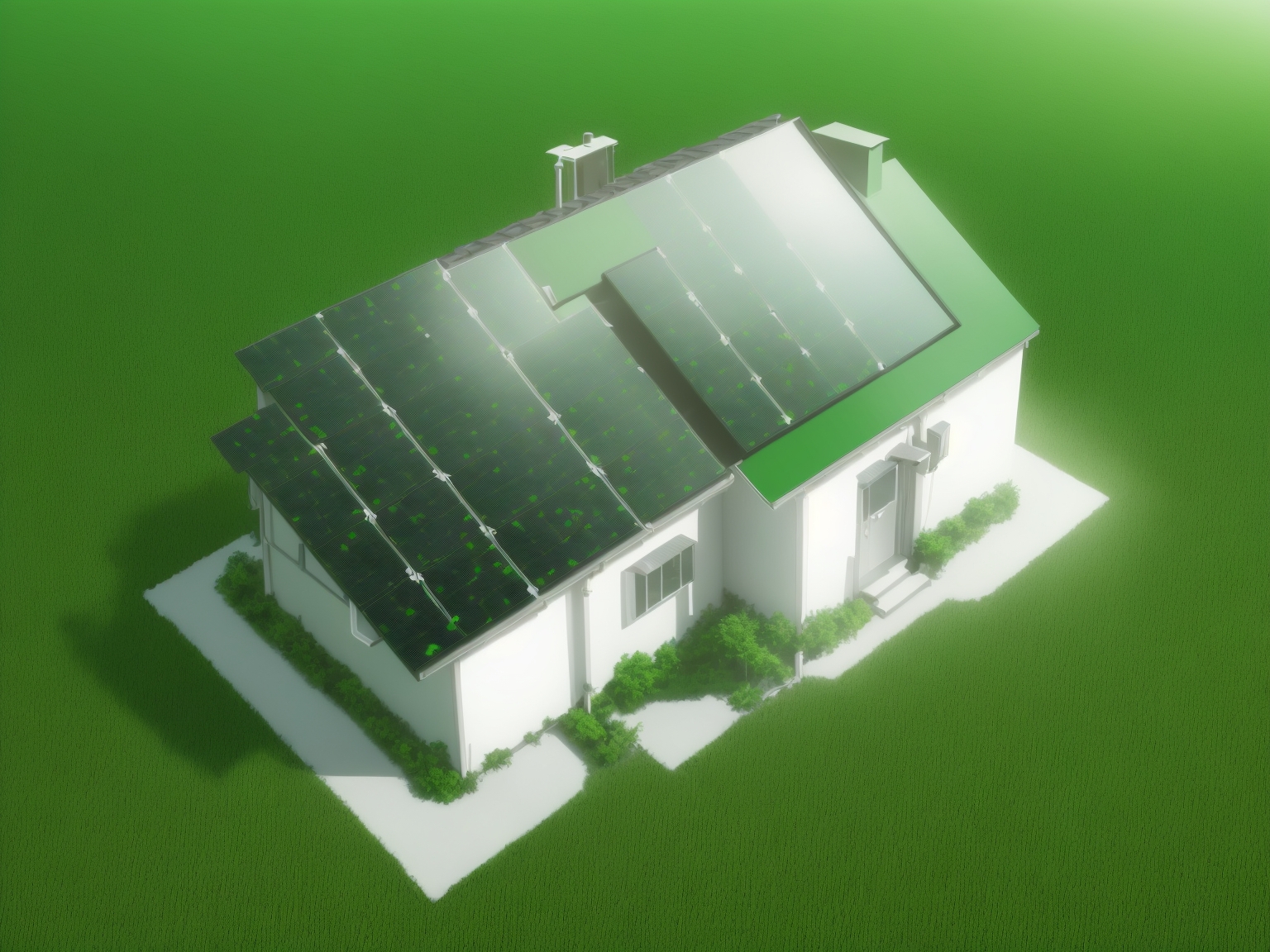Title: Green Energy Solutions for Homes: A Comprehensive Guide
Introduction
————
Welcome to our insightful guide on Green Energy Solutions for Homes! As global awareness about climate change escalates, more homeowners are looking for ways to reduce their carbon footprint and save money on energy bills. This comprehensive guide provides you with an in-depth understanding of green energy solutions available for homes, their benefits, installation process, and FAQs to help you make informed decisions.
**Section 1: Understanding Green Energy Solutions**
* What is Green Energy?
+ Green energy refers to power generated from renewable sources like solar, wind, hydroelectricity, geothermal, and biomass, which are sustainable and eco-friendly.
* Why Green Energy for Homes Matters
+ Reduces reliance on fossil fuels
+ Lowers carbon emissions
+ Saves money in the long run
+ Increases home value
**Section 2: Popular Green Energy Solutions for Homes**
**2.1 Solar Energy**
* How does solar energy work?
1. Solar panels capture sunlight and convert it into electricity.
2. Inverters transform the DC power to AC power, suitable for household use.
* Advantages of solar energy:
+ Renewable and abundant source of energy
+ Low maintenance costs
+ Government incentives and rebates
+ Reduces electricity bills
* FAQs about solar energy:
1. How much does a solar panel system cost?
2. Can I generate enough power for my entire home with solar panels?
3. Is my roof suitable for solar installation?
**2.2 Wind Energy**
* How does wind energy work?
1. Wind turbines capture kinetic energy from the wind and convert it into electricity.
2. The electricity generated is sent to an inverter and then distributed throughout the home.
* Advantages of wind energy:
+ Renewable and clean source of energy
+ Lower maintenance costs compared to fossil fuels
+ Reduces reliance on fossil fuels
+ Can generate power even when the sun isn’t shining
* FAQs about wind energy:
1. How much space do I need for a wind turbine?
2. Are there any noise concerns with wind turbines?
3. Can I install a wind turbine in my urban area or apartment building?
**2.3 Geothermal Energy**
* How does geothermal energy work?
1. Geothermal systems use the stable temperature of the earth to heat and cool homes.
2. A geothermal system consists of a heat pump, loop system, and an indoor unit.
* Advantages of geothermal energy:
+ Highly efficient compared to traditional heating and cooling methods
+ Lower operating costs over time
+ Environmentally friendly with zero emissions
+ Reduces reliance on fossil fuels
* FAQs about geothermal energy:
1. How much does a geothermal system cost?
2. What is the installation process for a geothermal system?
3. Is my home suitable for a geothermal system?
**Section 3: Incentives and Rebates**
* Government incentives and rebates available for green energy solutions
1. Federal tax credits
2. State tax incentives and grants
3. Utility company rebates
* How to find available incentives in your area
+ Visit databases such as DSIRE (Database of State Incentives for Renewables & Efficiency)
+ Consult with a green energy professional or local government offices
**Conclusion**
Transitioning to green energy solutions is not only an investment in the future but also an opportunity to save money on your energy bills. By choosing renewable energy options, homeowners can significantly reduce their carbon footprint while enjoying the numerous benefits that these sustainable solutions offer. We hope this comprehensive guide has given you valuable insights into the world of green energy and provided answers to many of your questions about implementing these solutions in your own home.
FAQs:
**1. What is the best green energy solution for my home?**
Answer: The best green energy solution for your home depends on factors such as location, roof orientation, available space, and budget. It’s recommended to consult with a green energy professional to determine the most suitable solution for your specific circumstances.
**2. How long does it take to recoup my investment in green energy systems?**
Answer: The time required to recoup your investment depends on factors such as system size, installation costs, and available incentives. Generally, solar panels can recoup their cost in 10-25 years, while geothermal systems may take longer due to higher upfront costs but offer lower operating expenses over time.
**3. Is it worth investing in green energy solutions when the payback period is long?**
Answer: Investing in green energy solutions offers long-term benefits such as reduced electricity bills, increased home value, and a lower carbon footprint. While the initial investment may be significant, the long-term financial and environmental advantages make it a worthwhile investment for many homeowners.

Leave a Reply